What keeps you turning the PAGE? _ A TO Z
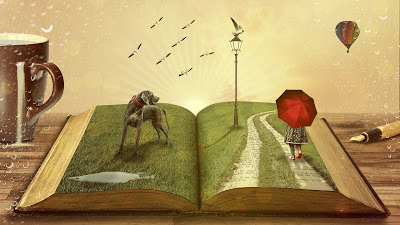
“There is no terror in the bang, only in the anticipation of it.” - Alfred Hitchcock
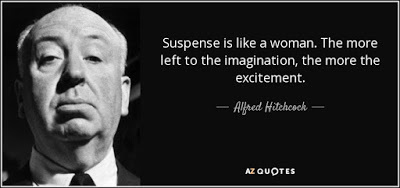 Ghost of Alfred Hitchcock here
Ghost of Alfred Hitchcock here
Twenty-eight of my movies were derived from novels.
You might think of that as "Dial L for Literature."
I so enjoyed the works of British author Daphne Du Maurier,
I based three of my films on two of her novels,
Jamaica Inn and Rebecca and one short story, The Birds.
Too many look at a French novelist's name and imagine men at street cafes,
wearing berets, smoking French cigarettes, and staring off into the distance
as if searching for that abyss of which Sartre and Nietzsche wrote.
Please do rise above that provinciality and dare her work.
You will be rewarded with fine storytelling.
GOOD STORYTELLING
It can all be reduced to one word:
SUSPENSE
The reader fears that something terrible is going to happen to a character for whom she has grown to care.
Mystery is the hook. Yet, mystery is an intellectual process.
Suspense is essentially an emotional one.
A DIFFERENT WOLF
Fear isn't so difficult to understand. After all, weren't we all frightened as children?
Nothing has changed since Little Red Riding Hood faced the big bad wolf.
What frightens us today is exactly the same sort of thing that frightened us yesterday.
It's just a different wolf.
This fright complex is rooted in every individual.
HOW TO BIRTH EMPATHY
The fear of being helpless in face of danger is universal and so can evoke empathy in the reader.
Take this scene -
A young girl gasping for breath inside an oxygen tent.
She speaks to the icily beautiful woman standing by the oxygen pump.
"I will never call you mother. You've fooled everyone else. But not me."
The cool blonde smiles slightly as the young girl continues.
"Deep inside you there is someone terrible that no one else knows about."
The step-mother leans forward as she slowly turns off the oxygen and smiles wider.
"Now, I have everyone fooled."
As a good story-teller you will, of course, come up with a realistic way for which the young girl to survive.
But from that moment on, the reader will be bonded to your heroine.
WHAT HAPPENS NEXT?
If you can keep the reader asking that question at the end of every page,
you have succeeded in creating suspense.
It is the story-teller's primary function to create a living emotion.
His secondary function is to sustain it.
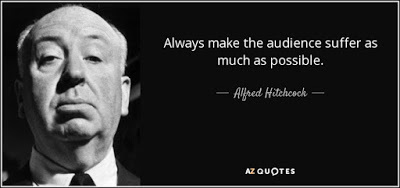
What many fledgling authors do not understand is
that the more successful your villain is, the more successful your novel will be.
Your antagonist must win at every turn.
Like a dinosaur caught in a tar pit,
your protagonist must sink deeper into the trap with each attempt to escape it.
Your antagonist must be frustratingly urbane, intelligent, resourceful,
able to mingle with her victim's associates without arousing suspicion.
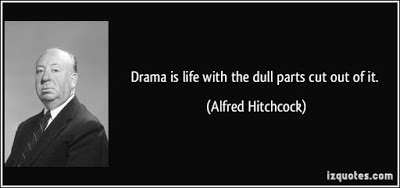
If you craft your antagonist well enough, many of your readers will fantasize being him or her.
A woman who spends all day washing and cooking and ironing
doesn't want to watch a film or read a novel about a woman who spends all day washing and cooking and ironing.
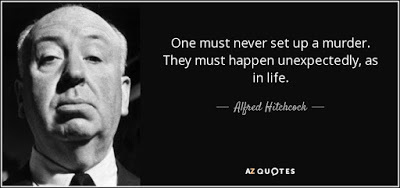
I hope this has helped in some small way.
Now, I must be off.
I see the ghost of Lovecraft drifting my way,
and I scare so easily.
Published on April 18, 2018 22:00
No comments have been added yet.



